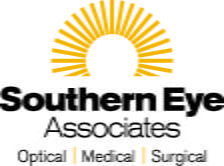Dry eye occurs when the eye does not produce enough tears or when the quality of the tears can’t keep the surface of the eye adequately lubricated. In other words, there’s a lack of balance in the tear-flow system.
A number of factors can unbalance the system. Health conditions can affect your ability to make tears, such as Sjogren’s syndrome, rheumatoid arthritis, and collagen vascular diseases. Environmental triggers, such as pollution or the weather, play a role. Sometimes it’s caused by medications, such as antihistamines, some glaucoma medications, asthma medication or birth control pills and hormone replacement therapy. It can be made worse by computer or contact lens use.
Because dry eye disease can have a number of causes, a variety of treatment approaches are used. For most people with occasional or mild dry eye symptoms, over-the-counter eyedrops (artificial tears) can help significantly. If your symptoms are persistent and more serious, your ophthalmologist can offer other options or switch medications that may be inducing dry eye.
Here are some of the options, depending on the cause and severity of dry eye:
- Antibiotic to reduce eyelid inflammation. Inflammation along the edge of your eyelids can keep oil glands from secreting oil into your tears.
- Eyedrops to control cornea inflammation. Inflammation on the cornea, the surface of your eyes, may be controlled with prescription eyedrops that contain cyclosporine.
- Eye inserts that work like artificial tears. Inserted between your lower eyelid and your eyeball, these tiny inserts dissolve slowly, releasing an eye lubricant.
- Tear-stimulating drugs. These drugs are available as pills, gel or eyedrops.
- Tear-stimulating devices. A new device inserted in the nose stimulates a nerve to produce tears.
- Eyedrops made from your own blood. These are called autologous blood serum drops.
- Closing your tear ducts with a tiny silicone plug to reduce tear loss.
- Unblocking oil glands, using light therapy or eyelid massage.
- Treating an eyelid condition with surgery. Ectropion, a condition that turns lids outward, preventing the lid from closing completely.
